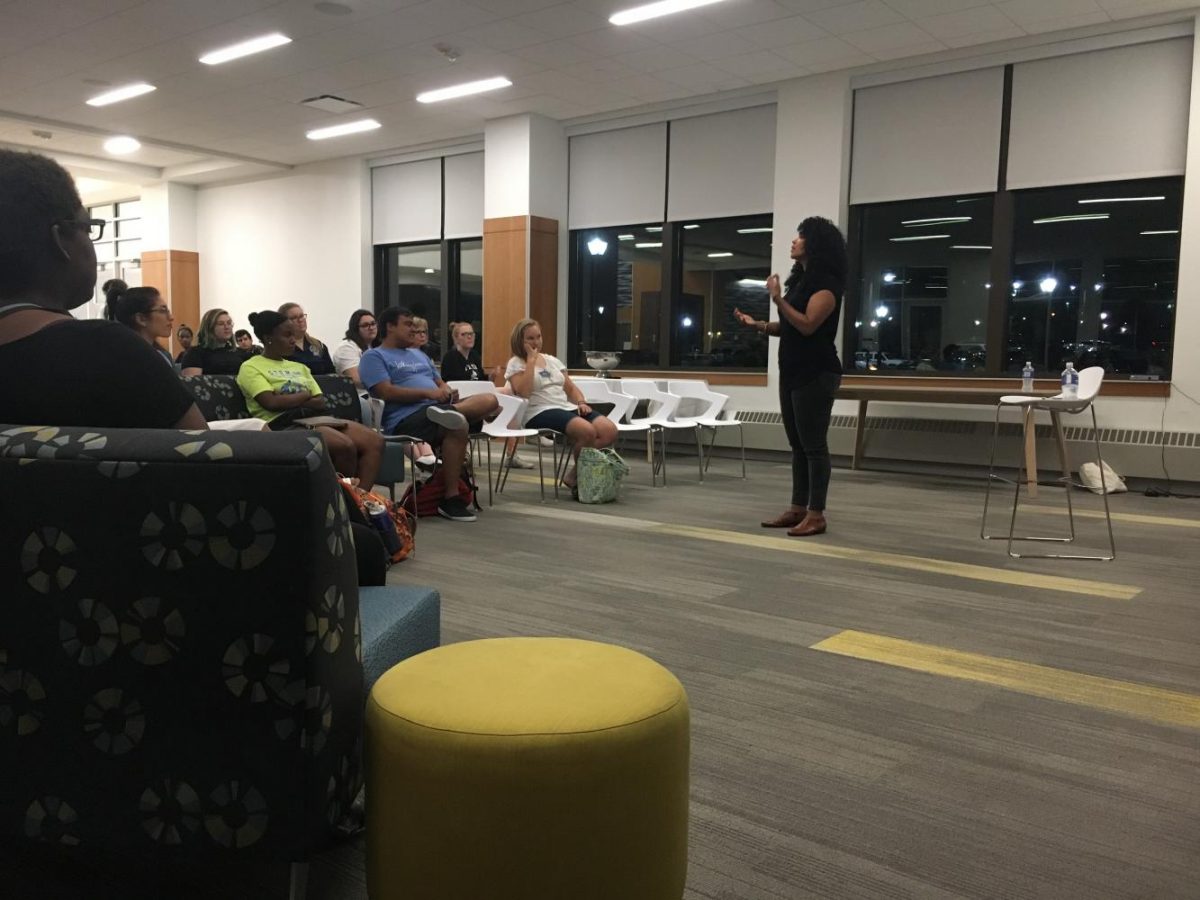Elizabeth Acevedo: In Her Own Words
Hair running as wild and free as her poetry, striding with no sign of hesitation or worry, a strong, powerful woman gracefully walked onto the makeshift stage at the sound of her name. Only she didn’t say hello or tell us her name for those who just missed it. She pounded her poetry, with the ferocity of shaking raindrops from clouds themselves. Elizabeth Acevedo was her name, and it better not be worn out.
Candid. Bold. Beautiful. It was only a preview of what Acevedo had in store for us that night. From the moment she took the stand, her heart poured out for all to hear. She jumped right into what she wanted to say, with no time to ignore the elephant in the room. Through her poetry, he was sitting there, watching with the rest of us, her voice ringing loud and clear.
From Madison Square Gardens to the Kennedy Center, from Europe to Ted Talks, her words rang out far across the world. All the world has heard her speak, yet she has not run out of words to give. Some words came from her parents, showing that ideas don’t just appear all by themselves.
For one of her poems, she gave an ode to a rat. Now there’s a puzzle: create a poem that honors a rat. It comes far from writing poems about deer, birds, or even foxes. In fact, when her teacher heard about her idea, he went on to say rats weren’t noble enough to be given an ode. The very concept of attempting to reach nobility: it was at that moment that lightning struck. She found that concept insidious. And thus, she wrote the ode from a place of spite. Only when those familiar words rang out in the UC that night, it spoke unbelievable truth, and not just for the allegory. She called squirrels for what they are: rats with nice-looking fur coats. Preach to the heavens, poet! Preach for all!
She also mentioned an aspect I might not have considered as an issue. Hair. My hair never wants to be held down in a ponytail. Even if it can, it always finds a way to escape the torture. My hair would end up falling apart and refusing to be tamed. But it’s still considered straight and thick.
With Acevedo, it’s a somewhat different case. Straight hair means you have all the power. And that’s coming from the powerhouse speaking to us. She said people would brand wild locks as “unprofessional.” And that came from the person who wouldn’t want to talk down to anyone. There was nothing holding her hair down that night. Why would there be anyway? And she wasn’t afraid to prove it, either.
Her repertoire contained glimpses of a world that many people have not seen, with a sheen or two of the wild oats that formed her into the woman she is today. Her struggles and challenges against prejudice were graciously captured with moving her body from the bottom up. Her arms reaching out, giving animation to her fiery words, stretching to free her soul for everyone to see, and offering a call to response.
Responses from the audience were welcomed with her open, animated, and dynamic arms. Besides the usual laughs and snaps, there were Mmm’s, claps, and the occasional “Yas” reverberating on the tips of our tongues. They served to give people the encouragement to be themselves in that space, as she herself intended. She was willing to get to know us, and we were willing to get to know her.
She was even kind enough to read to us passages from her upcoming novel “The Poet X.” The narrative that can’t get out of my head is a girl forced to kneel in rice after partaking in un-Catholic vice and double-crossing her parents. Her book is due to come out in 2018. All inverse, very explicit and heavy, and with not much salt left out or too much sugar added. For a public, all set to brace for a coming storm, but for us, a piece of literature everyone needs to read. But that excerpt isn’t even the beginning.
Millikin’s the fifth show she was doing, and there’s no sign of stopping. As long as she’s breathing, there will never be a shortage of things she will say. Pages and pages of prose, poetry, perceptions, personality, and a plethora of other things will always be shared and exposed as long as she continues her work.
A guest poet did not come to the University Commons to highlight her work to a crowd of twenty-five or so people. A beacon of truth did, and did so with poise and grace.

